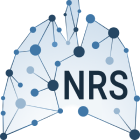Janita van Timmeren received NRS Travel Grant (2)
The 20th of April until the 24th of April I have visited ESTRO (European Society for Radiotherapy & Oncology) in Barcelona. The conference consisted of teaching lectures, symposia, discussion sessions and poster viewings. Machine/deep learning was one of the main topics of the presentations, showing very promising results. For instance, deep learning models have been used for emphysema detection and grading and also for detection and severity staging of COPD. The deep learning methods show higher performance than conventional density measures.
Several other studies that drew my attention investigated the change of (volume) metrics from PET or CT images during radiotherapy treatment of lung cancer patients and the relation to patient outcome. One study investigated the changes of 18F-FDG/PET metrics during radiotherapy treatment of lung cancer patients and their relation to overall survival. Interestingly, this group showed that patients having a slower response to treatment showed improved overall survival. Another research group investigated the changes in GTV during radiotherapy for lung cancer, and they found that the mid-treatment volume is more prognostic for overall survival than the volume at the start of treatment, whereas the volume change during treatment was not prognostic.
Besides the many interesting presentations I’ve seen, I had the opportunity to meet with researchers from other countries, including Belgium and Denmark, to discuss my own work. Overall, the conference has been a very fruitful meeting: I’ve heard a lot of interesting work and new insights in a wide range of topics.
Janna Elizabeth van Timmeren
GROW (School for Oncology and Developmental Biology), Maastricht University

